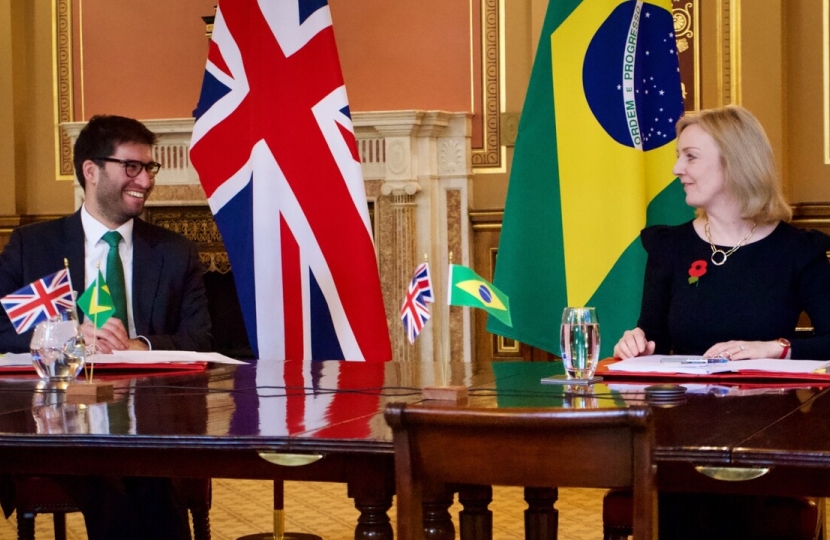Britain is quickly making her mark around the world as an important trading partner. We recently signed the Comprehensive Economic Partnership Agreement (CEPA) with Japan and we are well into negotiations with several other countries around the world.
In the past week, I have had the privilege of co-chairing a Joint Economic and Trade Committee (JETCO) with Brazil.
Brazil is one of the most attractive markets to do business with in Latin America and the Caribbean, and it is my job to make it easier to trade with this exciting economy.
Britain has been working with Brazil to modernise a number of regulations that were affecting around £140m of UK exports. I was pleased to discuss Clean Growth, Life Sciences, Agri-food and Sustainability, as well as Education at the recent Brazil JETCO and how we can continue to work with Brazil on addressing Britain’s Market Access issues.
We were also able to celebrate the removal of several Market Access barriers between Britain and Brazil which will now benefit British businesses:
British fisheries facilities can now export to Brazil
Seven new British fisheries facilities are now registered in the Brazilian Ministry of Agriculture’s system. By securing such approval from Brazil, we have ensured that these companies from England, Scotland and Northern Ireland can now sell their high-quality fisheries products to an import market worth almost £1bn in 2019.
This means that several businesses from across the country will be able to supply Brazil with high quality British fish, access a large import market and improve the international competitiveness in the Brazilian fisheries sector.
Easing of restrictions on foreign insurers operating in Brazil
Positive changes in the national reinsurance market mean there are now enhanced opportunities for British businesses to operate in Brazil. By significantly raising the limit that insurance companies can assign to occasional reinsurers, British insurance companies can access an increasingly competitive export and investment destination market.
Approval of Export Heath Certificates
Export Health Certificates are mandatory when trading animal origin products internationally. It reassures countries that all animal imports meet the previously agreed requirements. Following updates in Mercosur’s sanitary requirements for animal genetics imports, Britain was able to renegotiate several Export Health Certificates and allow trade to continue with Brazil. The growing British genetics sector has benefited from HM Government’s prompt support in agreeing updated certificates.
Once again, I was clear that economic growth does not need to come at the expense of the environment; it can help save it.
That’s why I look forward to tackling trade barriers in remaining areas like offshore wind, which has been identified as an area with significant potential for British businesses. Promoting our expertise in Clean Growth around the world will ensure sustainable supply chains in our trade policy and will mean we are able to shape our economy to support tackling climate change.
Brexit isn’t about pulling up the drawbridge; it’s about building bridges with old friends and like-minded new partners around the globe. This is further proof that we’re delivering.
This article was published on LinkedIn on 12/11/2020.



